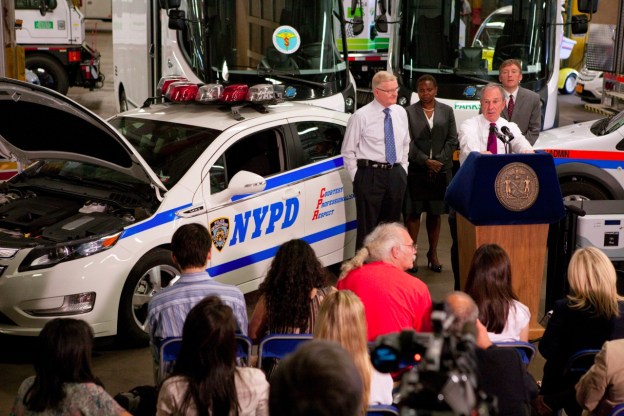
As part of the PlaNYC initiative to build a more environmental friendly version of New York City, Mayor Michael Bloomberg announced the addition of 70 plug-in vehicles including fifty Chevy Volt cars to be shared by the New York police department and the fire department. Other vehicles include ten Ford Transit Connect cargo vans and ten Navistar utility trucks. By adding the cars to the vast fleet of NYC automobiles, officials hope to reduce gas consumption and costs as well as carbon emissions and air pollution.

The city is also working with taxi companies on the New York City’s Taxi of Tomorrow program. Nissan is working with taxi owners on a pilot program by providing Nissan LEAF cars to taxi companies as well as placing charging stations around the city. According to data released by the NYC government, carbon emissions are reduced by 75 percent by switching to electric vehicles and the amount of engine heat is reduced dramatically on the busy city corridors.
According to a survey by McKinsey & Company, the majority of NYC residents are unaware of the benefits to electric vehicles. Only 30 percent of NYC citizens understood the limitations and benefits of driving electric-powered cars. However, providing this knowledge to the consumer and actively educating NYC residents increases the likelihood of an electric car purchase by 21 percent.


